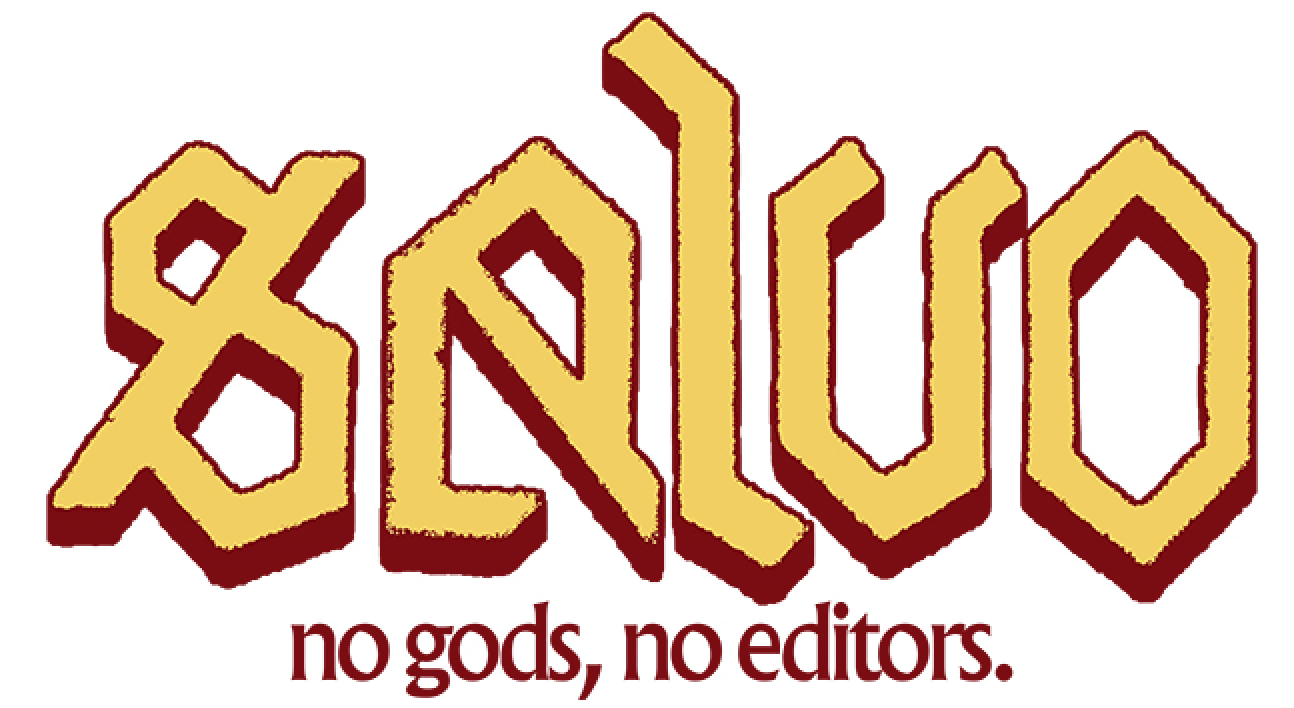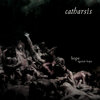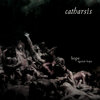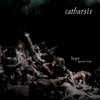Catharsis, Rebirth, and Hope
The North Carolina political hardcore icons return with their first new album in 24 years, and it's exactly what we needed.

The year I turned six years old, the world was consumed by scandal, violence, death, and destruction. President Bill Clinton was confronted with the first of his many sexual harassment cases, O. J. Simpson was arrested on murder charges, former President Richard Nixon, Kurt Cobain, and Jackie O. died, NAFTA came into effect, sectarian violence in the Balkans was at a fever pitch, genocide broke out in Rwanda, tobacco execs testified under oath that nicotine wasn't addictive, and the goddamn Cowboys won the Super Bowl.
1994 wasn't all bad, of course. Against an imposing backdrop of epoch-defining global change like the election of Nelson Mandela, a ceasefire between the Irish Provisional Army and occupying British forces, and the Zapatista revolution in Chiapas, a little band from North Carolina released their first demo tape. Fall was the world's introduction to Catharsis, a scrappy collective of Southern anarchist punks who would eventually become one of the most revered entities in American hardcore.
Even on those early recordings, the passion and fury bleeds through, and over their next decade of activity, they just kept getting better. Two full-lengths, 1997's Samsara and 1999's Passion, were joined by a passel of splits with like-minded hardcore voices, and established Catharsis as one of the genre's guiding lights, devoted to a radical message of liberation as well as the music itself. The band further burnished their uncompromising DIY rep by releasing their music via CrimethInc, a long-running anarchist media and organizing project founded by vocalist and guitarist Brian in the mid-90s that has since developed into a decentralized collective with a global scope.
CrimethInc has inspired generations of young anarchists, dreamers, and the anarcho-curious to get involved in direct action, political education, and various revolutionary projects across the country and around the world. As Brian tells Salvo, that work continues—and so does Catharsis, who have just quietly dropped their first new full-length album since Passion. It was, of course, released by CrimethInc.
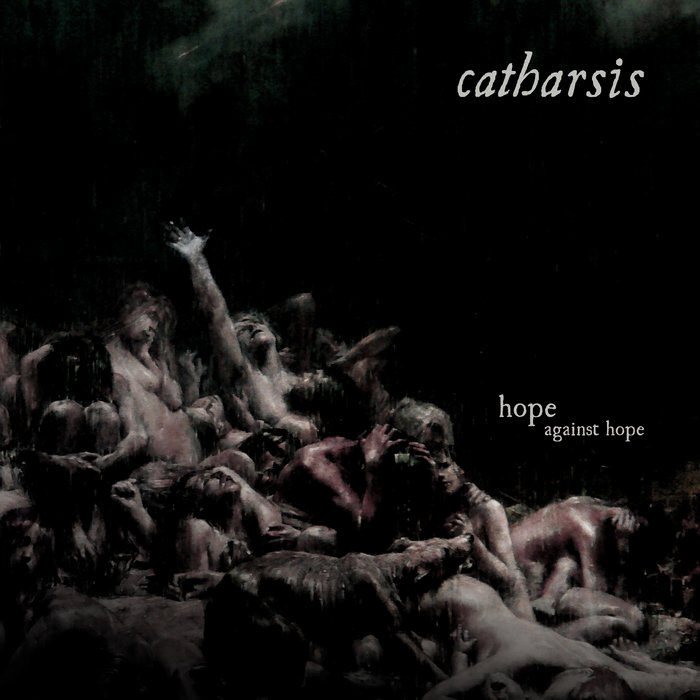
Hope against Hope isn't a comeback album, though it's certainly a welcome surprise. Catharsis as they are now have been playing together since 2013, when Jimmy Chang (of Undying and Sect) rejoined the lineup, and these songs have been in the works for decades. As the band explained in their album announcement, "We’re still the same people, just a few years older, a few years angrier, more heartbroken, more haunted by the brutality of our society, more convinced of the urgency of our mission."
That mission really could not feel more urgent. Thankfully, it is no longer a novelty to see a heavy band express an unapologetically leftist political opinion (and hardcore has always had a deep strain of radical thought running beneath the breakdowns), but there's still nobody doing it like Catharsis does it. And just like Brian said, on Hope against Hope, they really do sound better than they ever have. It is a truly tremendous album, animated by a deep and clear commitment to its makers' fellow beings. "We aspire to act in solidarity with all who fight against oppression," the band explains. "Without adhering to a particular dogma, we affirm the anarchist ideal of relationships without coercion and an open horizon before us. No one above and no one below."
I was lucky enough to be given the opportunity to connect with Brian and learn more about the new album, the state of the band, and how to keep hope alive in a world on fire. The following interview is a collective effort, with contributions from multiple members of the band. Make sure to scroll down to the bottom for tour dates, because if, like me, you still haven't seen Catharsis live yet, you may finally get your chance.
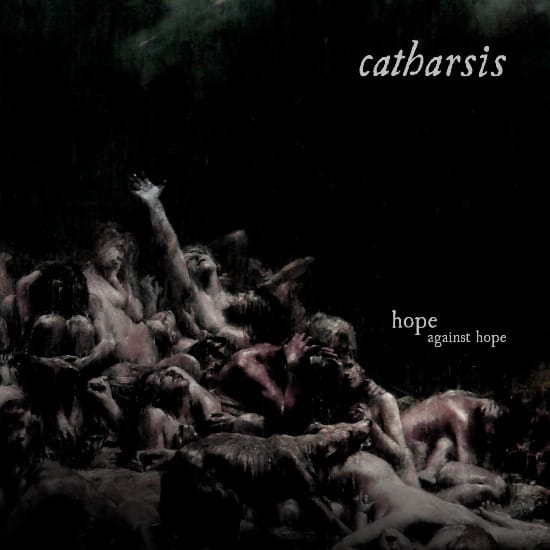
SALVO: As you mentioned in the album announcement, it has been 24 years since the last Catharsis LP. Desperate times do indeed call for desperate measures, but things have been getting bad for a good while now, and this lineup has been playing together and working on these songs for years. What was the defining moment or event that made you all decide, "Alright, it's time. Let's release this thing"?
CATHARSIS: When we played with Tragedy in the Netherlands in 2018, they had just released the Fury 7". They performed immediately after us, and it was... cathartic to be able to step off stage and immediately be in the audience, dancing to these anthems that express the rebel culture we have spent our lives building, in the midst of a crowd of strangers with whom we share a way of life. Their new songs weren't bad, either. That was the first moment I remember when it felt like it might make sense for us to go ahead and record new material of our own.
But we didn't really prioritize working on it until the pandemic hit. That drove home how fragile everything is, how easily we could lose everything that is meaningful to us, like the collective experience of hardcore shows. As we were finishing up the record, it became clear that Donald Trump was going to return to office and a truly dark future was in store. In an emergency, when the stakes are high, you grab a mask and go on the offensive. It's safer in the front.
But in a truly bad situation, when it's not clear how much time you have left, the most important thing is to address those who will come after you, to pass on everything that you have to offer so they can use it when you are gone.That's one way to understand our decision to release another album. "Settle my debts — I'm ready."
This album really does feel necessary right now, when the dream of a better world that so many of us have cherished for so long feels as though it may finally be slipping through our fingers. It's an angry album, of course, but Hope against Hope is very clear in its animating principle: holding fast to hope, refusing to back down or roll over, encouraging our comrades to keep pushing, keep trying, keep fucking holding on. It's not exactly positive, but it is encouraging. Can you tell me a little about your thought process behind the album, and about the kind of impact you hope to achieve with it?
At this point, we are the survivors of an older generation of punks. Many of our dearest comrades didn't make it this far. We have already lost multiple bandmates and lovers. Each of us has spent time struggling in the borderlands between life and death. The stakes are very clear to us.If we could help a few more brave, sensitive dreamers to do what it takes to remain in this world alongside us, that would count as success.
This isn't your first rodeo, as a band or as liberation-minded people, and you've weathered many cycles of political and social change. How do you hold onto hope? Where do you find it, and how do you avoid succumbing to darkness and fatalism? I always think of Mariame Kaba's "hope is a discipline" quote, and the sheer amount of stubbornness it takes to keep from giving in to the abyss.
I'm not sure I would describe myself as hopeful. There's an ambiguity in the title: it can also be read as hope against hope.But however disillusioned I might be with hope, I'm even more disillusioned with despair. I know that despair has nothing to offer me. As things get dimmer and grimmer, as the scum who hold power do everything they can to prevent us from empathizing with each other and addressing the problems that they are creating for us, we don't have the luxury of despair. When you're in a do-or-die situation, you have to focus all your attention, all of your agency, on whatever changes you might be able to make immediately, however small those might be, in hopes that if you can change one thing, it might open another door, another set of possibilities.
I still don't know if we can achieve the things we are fighting for. For me, that is precisely the point: we can't know what is possible in advance. And because we can't know, we have a responsibility to try for the most ambitious goals, to find out what is possible the hard way. "Nothing could be more tragic than to live out a whole life in reach of heaven without ever stretching out your arms." Perhaps the things we desire are impossible. Perhaps we will never see the end of all the forms of oppression that prevail today, all the senseless ways that human potential is wasted and other living things are treated as commodities. But even if that is true, it doesn't make it any less important to fight. In that case, our vision of a better life is the one ray of light in the darkness, and honoring it is the most worthwhile thing we can do.
If we are indeed doomed, we can at least gesture at the world that should be, the lives we should have had, as a way to spite the ugliness of the world that is and those who are choosing to make it this way to everyone's misfortune.
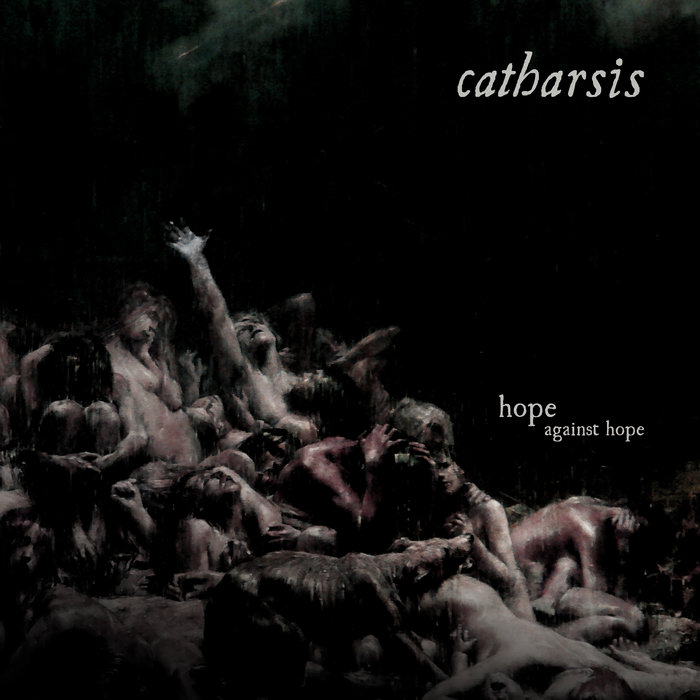
I am a lyrics nerd as well as a history dork, so the song, "Gone to Croatan" stood out to me immediately. We never did find those early colonizers, but the mystique around their disappearance has endured. Can you tell me more about how this song fits into the album overall and what this historical reference's significance is here?
As people who grew up in what is now known as North Carolina, that story is part of the construction of historical memory. As a child, I was taken to a pageant version of "The Lost Colony." Who we identify with in those stories and how we imagine life beyond the colonial palisades are not abstract questions. They shape what we value and who we regard as human, from here to Gaza.
We cannot talk about the things that Hope against Hope addresses without framing them in the context of the colonial violence that established this society and continues to shape it. We ourselves can't offer an Indigenous perspective on those questions. There are others who can do that. But we can assert that it is important to ask the questions — and to remember.
Much has been made of the loneliness epidemic consuming so many people in this age of hyperconnectivity and incredible isolation, but "Eremocene" brings the natural world and our decimation thereof into the conversation. Tell me about the vision of the Eremocene that you lay out on Hope against Hope, and how you think we can avoid its bleak horrors—or if it's already too late?
Like you say, loneliness and isolation have become widespread. We are all busy pursuing a simulation of connection. It takes up so much time that we have little time left for the real thing — and the same social conditions and economic processes that compel us to do this are destroying the rest of the natural world, as well. We feel this loneliness not only in the absence of human companionship, but in our distance from the rest of the web of life.
Still, even now, connection is possible. Fulfilling, egalitarian relationships are possible, relationships that are about collective thriving rather than individual profiteering. We know this because our band is an outgrowth of such relationships, not just between the members but stretching all around the world. Perhaps it is even possible that human beings could one day reestablish a sustainable relationship to the rest of the biosphere.
But if we are going to be able to cultivate any of those things, the first step will be to stop trying to dominate and control each other and everything around us, and that will mean departing from much of what we know. "You will arrive — if you reach the land you seek — not as a king, but as a refugee."
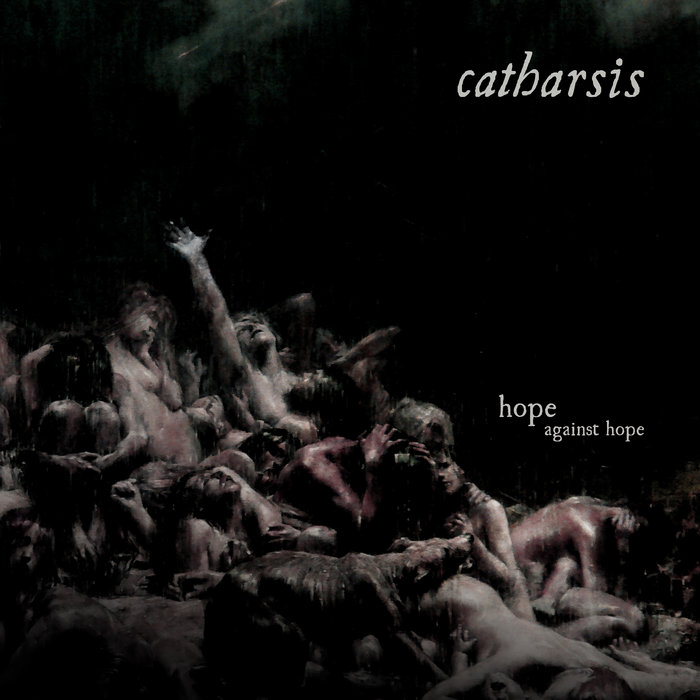
Can you tell me a little about your choice of guest performers and collaborators for this album? There's a really cool group of artists and engineers involved, and I'd love to give them a little shine here too!
Zach was the violinist in Requiem and used to play an earlier version of the song he performs on Hope Against Hope. He belongs on this recording. It has been a dream of mine for a long time to get to play music with Gosia and Sebastian, two of my favorite vocalists in hardcore. All of Gosia's bands have been incredible — Mind Pollution, Next Victim, Dyym, Sorrow. The range of what she can do with her voice is comparable only to Diamanda Galás. As the singers of Vittna and Scarecrow, Sebastian and Red have been mainstays in the North Carolina hardcore scene, as well as friends of ours for decades now.
Fred is one of the singers of one of the world's most powerful and politically incisive vegan straightedge hardcore bands, Point of No Return. We got to know him when he set up a DIY tour of Brazil, Uruguay, Argentina, and Chile for us in the year 2000, long before that was a beaten path. I learned a great deal from Fred on that tour. We were fortunate to be connected to Benny Grotto and Kurt Ballou, as Alexei had already recorded with Benny and Jimmy had worked with Kurt. They did an incredible job capturing our sound. Really, we've never sounded as good as we do this record.
For those who might not be as aware of your work outside of music (though really, in conjunction with it), could you give a brief update on what kinds of work and projects CrimethInc. is prioritizing right now, and how your own experiences within the radical political world have shaped the way you are approaching this latest era of Catharsis?
For thirty years now, CrimethInc. has produced music, books, journals, posters, zines, and other creative projects, all aimed at paving the way to collective liberation. The collective has expanded into a worldwide network; if you look at the front of our website this week, you'll see everything from neighborhood organizing in Seattle to political analysis from Iran, and some of those texts have already been translated into eleven different languages.
We have several ambitious longer-term projects in the works. But since 2017, it's been challenging to make progress on the more creative aspects of those, as we have been busy scrambling to respond to one crisis after another and to equip people for the fights that are taking place right now. At times, it can be grim work. Dangerous, too.
When we were younger, music was one of the chief forms of political activity we were engaged in, and it was easy to be impatient with the limitations of the punk subculture. Today, after a life of what you might call activism on a variety of fronts, most of them not subcultural, it's easier to appreciate the things that are unique about punk and hardcore. Really, it's a joyous thing to get to play shows and release another album.
Hardcore has always been political, and it's been really energizing to see so many young bands making that connection explicit for their fans, whether they've focused on gender liberation or anti-fascism or vocal support for Palestine. As people and artists who have always been extremely clear about your politics, how are you feeling about the current state of the genre and the community? Do you still find hope in hardcore, Tiktok trends and fast food deals and all?
Hardcore itself has always been contested territory. That's part of the appeal. You're never just preaching to the converted. For me, TikTok and corporate sponsorships have nothing to do with hardcore: "I decide what it means to me—and this is just the shit they play on MTV," as Final Exit put it. But I want to be in spaces with people who don't see it that way. I want to be in dialogue with them. First, because that's a way to expand the ranks of those who understand hardcore as more than music, and equally, because I want the things we set out to do to be informed by their perspectives as well as our own.
At the same time, whether we are talking about the hardcore scene or the anarchist movement, I try to never make the mistake of conflating the scene that currently exists with the movement that ought to exist. The scene that currently exists is not going to solve our problems. It doesn't make sense to expect too much of it or to waste too much energy being disappointed by it. But that scene gives us an opportunity to create the movement that *should* exist. The responsibility lies in our hands.
That's how I try to think about all my relationships. It doesn't do us much good to hope that others will solve our problems for us, nor is it usually very effective to imagine that we can solve our problems all by ourselves. It works better if each person asks herself or himself "What can I do myself that will help us to become capable of solving these problems together?"
For hardcore (and punk, and metal, and otherwise) kids who haven't felt drawn to politics until recently, what path do you recommend they take into expanding their education and becoming involved in their own radical communities? If, say, a kid in rural North Carolina hears this record and is inspired to do something to try to fix this mess, what homework can we give them?
We have learned so much from the hardcore scene. We got our entire political education from touring and playing at squatted social centers and learning about the different inspiring projects that punks were undertaking in different parts of the world. Witnessing the global punk and hardcore networks that existed in the 1980s and 1990s taught us that people can organize effectively and on a massive scale without hierarchies or capitalist profiteering.
But there are countless other spheres of life in which the same principles can produce similar results. Part of what we do outside the band is aimed at ensuring that there are positive, grassroots activities besides hardcore for people to get involved with, so that they can discover that other ways of relating to each other are possible even if screaming and exchanging semi-consensual blows with strangers mysteriously does not appeal to them.
Ideally, if someone in rural North Carolina is hungry for a better way of life, they should be able to get involved in a reading group, disaster response group, Really Really Free Market, or food distribution program in their vicinity. We help organize those things where we live, but we also try to make the models we use reproducible and to support those who are starting similar projects elsewhere. I'm pleased to report that there are now five Really Really Free Markets within an hour of where I live, now, all based on the model demonstrated in my hometown. Hopefully, they will continue to spread into the regions where they are most needed.
But if you are reading this in some place where nothing inspiring is happening, the best advice that I can give you is that the fastest way to meet inspiring people is to try to organize inspiring things yourself. Learn about what people have done in other times and places, start with whoever and whatever you have around you, and build with whoever you meet in the process. Be persistent. That's what we did.
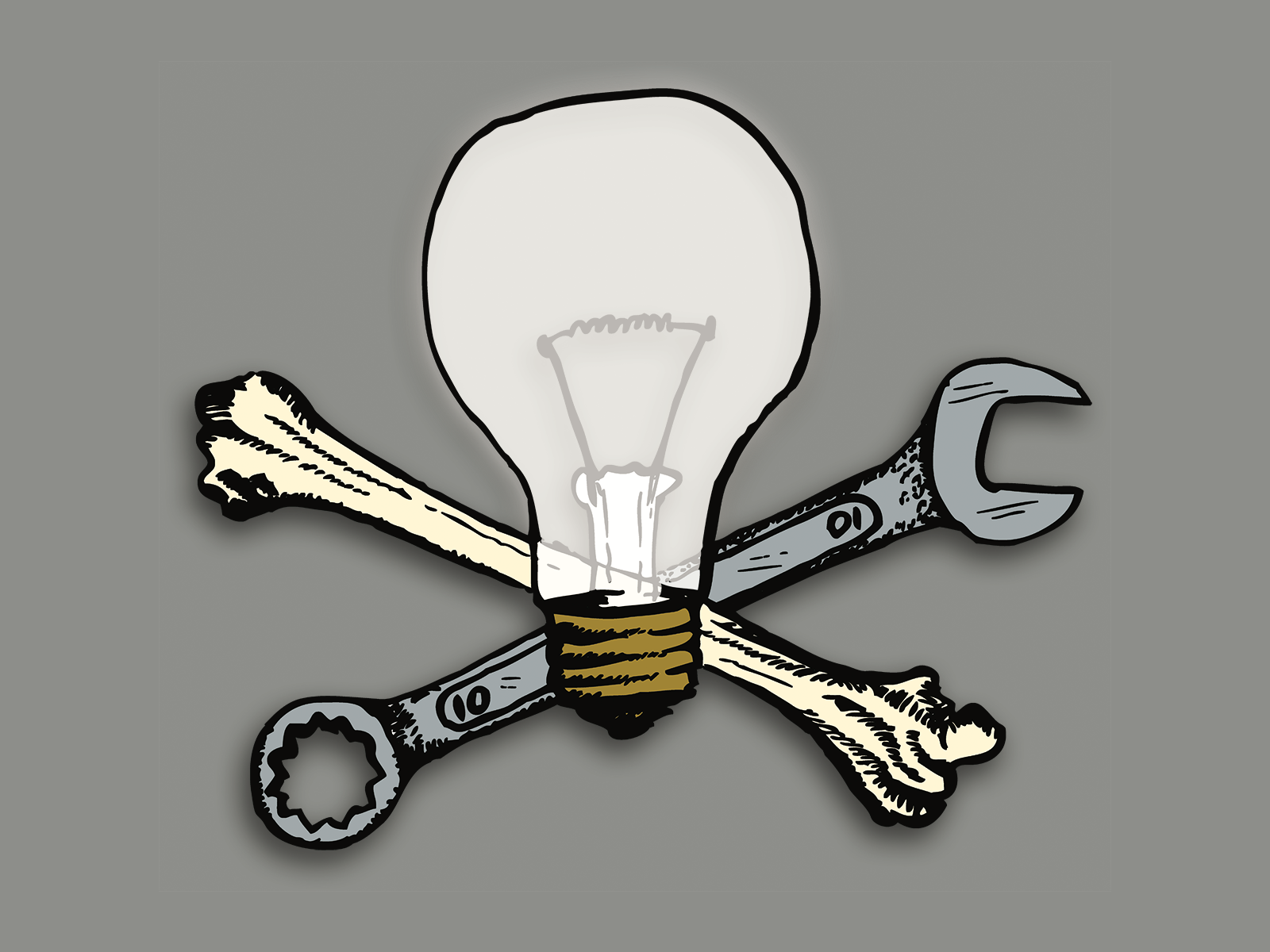
Can I assume that you'll be touring to support the album? Can you share any info on that front?
If all goes well, we will be playing shows up and down the East Coast starting August 8, and then trying to make it to Europe in October. We hope to be more active than we have been in decades. Write us and invite us to play where you are! We'll try to make it happen!
Is there anything else you'd like to add here? I appreciate you taking the time to wade through all these!
You're welcome, and thank you for the opportunity! If people want to keep up with what we're doing, you could start here: https://linktr.ee/catharsis_nc
Catharsis U.S. Shows, August-October, 2025
- August 8 - Durham, North Carolina: The Pinhook
- August 9 - Asheville, North Carolina: Sly Grog Lounge
- August 10 - Atlanta, Georgia: Eyedrum
- September 12 - New York City, New York: Property Is Theft, Brooklyn
- September 13 - Providence, Rhode Island
- October 10 - Raleigh: Kings
- October 11 - Richmond, Virginia
- October 12 - Washington, DC
- October 13 - Philadelphia
Catharsis European Tour, October 15-25, 2025
- October 16 Warsaw, Poland: Voodoo Club with Point Of No Return, Ghostchant, Moira
- October 17 Krakow, Poland: Alchemia with Point Of No Return, Ghostchant, Moira, Reagnition
- October 18 Budapest, Hungary: Turbina with Point Of No Return, Ghostchant, Vlky
- October 19 Zagreb, Croatia: AKC Attack with Vlky
- October 20 Bologna, Italy: Freakout
- October 21 Munich, Germany: Kafe Kult
- October 22 Vienna, Austria: Tüwi with Vlky
- October 23 Brno, Czech Republic: Kabinet MUZ
- October 24 Schweinfurt, Germany: Stattbahnhof
- October 25 Berlin, Germany: Neue Zukunft with Corrective Measure, Moira
Stream and purchase 'Hope against Hope' from the comrades at CrimethInc, and support antifascist anarchist heavy music journalism by subscribing to Salvo!
+
